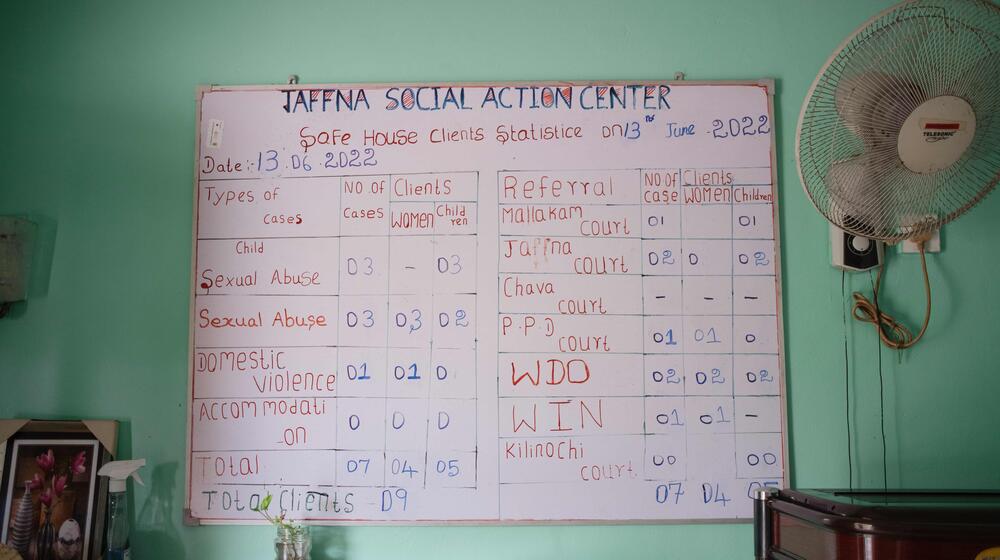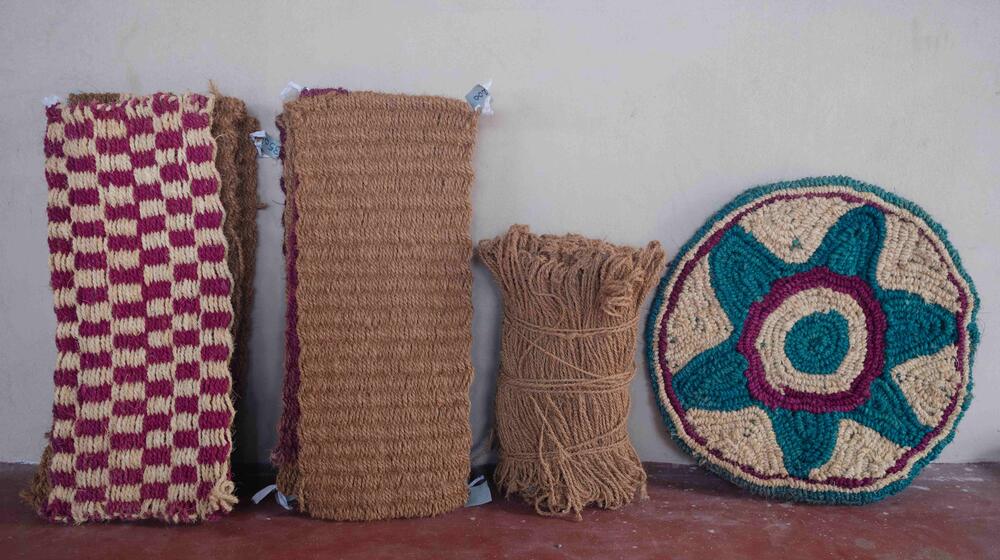News
Survivors of gender-based violence in Sri Lanka at risk as crucial protection services shutter
- 19 September 2022
News
COLOMBO, Sri Lanka – “When there is domestic violence, women need to stay in a safe house. But when one woman called me and asked for transport, I had to tell her we didn’t have enough funds to bring her to the shelter.”
Francine Princey works at the Jaffna Social Action Centre – a UNFPA-supported refuge for survivors of gender-based violence. She has seen a spike in calls for help since Sri Lanka spiralled into the worst socioeconomic crisis the country has ever witnessed.
“Without money, every family has a problem,” Ms. Princey said. “Labourers are unable to get a job and then families face difficulties, including more violence.”
Fuel shortages are also making transport ruinously expensive, which limits the options for survivors seeking to escape their abusers and further endangers their lives. In Sri Lanka, one in four women have been subjected to physical or sexual violence at some point in their lives, a figure expected to rise as incomes dwindle and tensions at home mount.
Now with government funds stretched to their limits and chronic shortages of even the most critical supplies, the national health-care system is buckling under the pressure. Sexual and reproductive health services have been severely disrupted, even for essential support such as emergency maternal health care, access to contraception and safe houses for women.
Shortfalls endangering lives of women and girls

Since mid-June, UNFPA has been supporting seven shelters for survivors of gender-based violence across Sri Lanka. Yet despite having the funds to at least keep the doors open, due to soaring inflation most staff can’t afford to travel or keep working for a fraction of their pre-crisis salaries.
Francine lives nearby so she can walk to work, but admits that the challenges are multiplying as money dries up and the centre can no longer offer basics such as transport: Limited fuel and sky-high transport costs mean women are only driven to the shelter by government vehicles if they have a court order to protect them.
She worries that even if they do get to the shelter, without the full range of support needed they may not be able to fully recover.
After months of shortfalls, the Jaffna shelter has been forced to stop offering psychosocial counselling and life-skills training, which before helped survivors to regain their self-confidence and get back on their feet financially.
Rangi* is 21 years old and has been living at the shelter for over a year. She said she is heartbroken to no longer be able to teach other survivors skills that could help them earn an income and provide for themselves.

“We used to make doormats,” she explained. “We had the machines and equipment, but we no longer have the ropes or dye. If we had resources, we could teach other girls who will come here in the future.”
“All the girls here have been through many problems and are in a lot of pain,” she said. “When I’m sewing, I feel calm and relaxed. I don’t dwell on my problems, because I can focus on the task.
Preventing violence, protecting survivors
Years of experience working with survivors of gender-based violence have shown Francine what is possible when women get the right support. “When women came here before the crisis, we taught them skills and helped them learn how to navigate challenging life circumstances.”
To avoid more life-saving initiatives like the Jaffna shelter having to shut their doors, UNFPA has launched an appeal for $10.7 million to ensure sexual and reproductive health care and gender-based violence protection services for more than 2 million women and girls in Sri Lanka in 2022.
The response aims to coordinate the prevention, protection and referral systems in place to tackle sexual and intimate partner violence and provide some 300,000 women and girls with information on the services and support available.
The funding will also cover distributions of essential medical equipment and supplies, including for emergency and obstetric care and the clinical management of rape, to meet the reproductive health needs of some 1.2 million people. A total of 10 shelters will be supported, expanding services for survivors of gender-based violence and providing 12,500 women with livelihood programmes.
*Name changed for privacy and protection